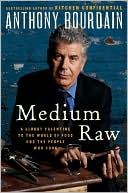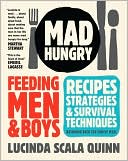Sugar: A Bittersweet History
Search in google:
Sugar: A Bittersweet History is a compelling and surprising look at the sweet commodity, from how it Africanized the cane fields of the Caribbean to how it fuelled the Industrial Revolution and jumpstarted the fast-food revolution. The book explores the hidden stories behind this sweet product, revealing how powerful American interests deposed Queen Lili'uokalani of Hawaii, how Hitler tried to ensure a steady supply of beet sugar when enemies threatened to cut off Germany's supply of overseas cane sugar, and how South Africa established a domestic ethanol industry in the wake of anti-apartheid sugar embargos. The book follows the history of sugar to the present day, showing how sugar made eating on the run socially acceptable and played an integral role in today's fast food culture and obesity epidemic.Impressively researched and commandingly written, Sugar will forever change perceptions of this sweet treat. Library Journal In this study, Abbott (A History of Celibacy) reveals the sordid past of a seemingly innocuous kitchen staple. Because she is a descendant of Antiguan sugar farmers and a former resident of Haiti, Abbott's sugar obsession runs deep and, not surprisingly, focuses primarily on the Caribbean. She recounts the origins and development of the sugar industry as a history of the people who suffered for its profitability. Paying considerable attention to the eradication of indigenous peoples and the inhuman treatment of African and Creole slaves, she is seemingly intent on exposing the immorality of sugar by pairing descriptions of its enslaved and indentured harvesters with startling vignettes of excess sugar consumption in Europe and the carefree lives of largely absent plantation owners. Although Sugar lingers a bit too long on the dark side of sugar production and can at times feel more like a tome on Caribbean slavery, Abbott has still produced a scholarly yet quite readable work. Her closing chapters on "sugar diasporas" and the modern sugar industry ultimately succeed in drawing readers back out of the cruel intricacies of sugar plantation slavery. VERDICT This is no Omnivore's Dilemma. Casual readers in search of a where-does-my-food-come-from tale might be overwhelmed with the details, but it's an intriguing history for those with the patience to stick with it. [See "Editors' Spring Picks," LJ 2/15/10.]—Veronica Arellano, Lexington Park, MD








